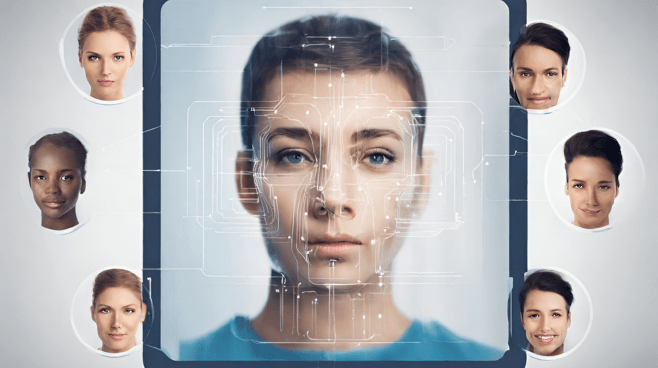The Digital ID System for Citizens and Residents in the UAE the initiative aims to provide individuals in the UAE with state-of-the-art services. The system aims to create a secure and reliable digital identity for citizens and residents, making it easier for them to access various government services from anywhere at any time. The system is being implemented in stages and will cover a range of services including healthcare, education, and banking.
This Guide was Last Updated on January 12 2024
- Introduction
- How Does a Digital Identity Benefit You?
- Digital ID System for Its Citizens and Residents
- Mandates the Use of a Single Digital ID System Across Government in the UAE
- Facial Recognition in the Digital Identity Application
- Compatibility of the Application
- What are the registration steps
- Technical Support
- Conclusion
- FAQs
Introduction
The United Arab Emirates (UAE) has embarked on a groundbreaking journey to enhance the citizen and resident experience with the implementation of a state-of-the-art Digital ID System. As the UAE seeks to become a global leader in smart governance, this ambitious initiative represents a major step forward in digital transformation.
Through the Digital ID System, individuals in the UAE will be able to seamlessly and securely access a wide range of essential services, from healthcare to education to financial transactions. In addition to a commitment to embrace cutting-edge technology, this transformative project underscores the UAE government’s dedication to empowering its citizens through technology.
In this introduction, we will explore the motivations behind its creation, its fundamental elements, and the far-reaching impact it is poised to have on UAE citizens and residents’ lives. The Digital ID System serves as a testament to the UAE’s unwavering dedication to fostering innovation and shaping a future in which technology catalyzes progress and prosperity, improving national security and streamlining bureaucratic processes.
How Does a Digital Identity Benefit You?

A digital identity offers numerous benefits, providing individuals with enhanced convenience, security, and efficiency. It streamlines access to various online services, facilitating quicker and more convenient transactions. Digital identities often incorporate robust authentication measures, bolstering security and reducing the risk of identity theft or fraud. Additionally, these identities empower individuals with greater control over their personal information, allowing them to manage and share data selectively. Digital identities also contribute to the seamless integration of technology into daily life, promoting a more interconnected and accessible digital ecosystem. Overall, a digital identity brings forth a host of advantages in terms of convenience, security, and user empowerment.
Digital ID System for Its Citizens and Residents

The UAE has instituted an advanced digital ID system for its citizens and residents. This state-of-the-art system is designed to provide a secure and efficient means of identity verification, transforming the way individuals engage with government services. The initiative aims to streamline processes related to registration, login, and other interactions, emphasizing accessibility and user-friendly experiences. By adopting cutting-edge technology, the UAE seeks to enhance convenience, security, and overall efficiency in managing digital identities. This digital ID system reflects the nation’s commitment to staying at the forefront of digital innovation and fostering a more seamless and inclusive environment for its residents.
Mandates the Use of a Single Digital ID System Across Government in the UAE

The UAE government has implemented a significant initiative by mandating a unified digital ID system across all its services. This strategic move aims to simplify access to government services for citizens, minimizing the reliance on traditional physical document verification processes. This integration of a single digital ID is poised to enhance efficiency, offering a streamlined and cohesive approach to interacting with various governmental functions. By centralizing identification through digital means, the government is not only fostering a more convenient experience for citizens but also mitigating the bureaucratic hurdles associated with multiple document submissions. The shift towards a singular digital ID system reflects the nation’s commitment to harnessing technology for the betterment of administrative processes, promoting a more interconnected and efficient government system that aligns with the contemporary needs of its residents.
Facial Recognition in the Digital Identity Application

The incorporation of facial recognition technology within the digital identity application signifies a pivotal advancement in identity verification. This feature utilizes sophisticated algorithms to authenticate users through their unique facial features, thereby providing a secure and efficient means of confirming one’s identity. The integration of facial recognition not only strengthens security protocols but also enhances user convenience, offering a seamless and contemporary approach to digital identity management. This innovative technology aligns with the evolving landscape of identity verification, promising a more reliable and user-friendly experience for individuals engaging with the digital identity application. By embracing facial recognition, the application not only prioritizes robust security measures but also underscores a commitment to staying at the forefront of technological advancements, ensuring a sophisticated and accessible digital identity ecosystem for users in the modern era.
Compatibility of the Application

The importance of compatibility cannot be overstated when it comes to application development. In order to provide users with a seamless and consistent experience, it’s crucial for applications to function properly across different devices and operating systems. Ensuring compatibility involves taking into account factors such as device types, operating system versions, and hardware specifications. By doing so, developers can ensure that their applications perform optimally and are accessible to as many users as possible. Rigorous testing is often conducted to identify and address compatibility issues, which ultimately contributes to a smoother and more inclusive application deployment.
What are the registration steps

Download the application:
Begin by downloading the application to your device.
Emirates ID Scan:
Utilize the app to scan your Emirates ID, capturing the necessary information.
Email and phone verification:
Verify your email and phone number by entering the one-time password (OTP) sent to you.
PIN Creation:
Establish a secure Personal Identification Number (PIN) for additional account protection.
Face recognition verification:
Confirm your identity using the app’s face recognition feature.
Password Setup for Digital Signatures:
Set up a new password specifically for digital signatures.
Alternative Registration Option:
If preferred, visit the nearest service outlet and register using your Emirates ID card.
These steps ensure a comprehensive and secure registration process, offering various verification methods for user convenience.
Technical Support

Technical support refers to the services provided to assist users with resolving issues or inquiries related to software, hardware, or electronic devices. It involves a dedicated team or resources that offer guidance, troubleshooting, and solutions to ensure the proper functioning of technology products or services. Technical support may be provided through various channels, including phone, email, chat, or online forums, and aims to address technical problems, answer queries, and assist users in maximizing the performance of their devices or software applications. The goal of technical support is to enhance the overall user experience and maintain the functionality and efficiency of technological solutions.
Conclusion
In conclusion, the Digital ID System for Citizens and Residents in the UAE stands as a testament to the nation’s commitment to technological innovation and efficient governance. By seamlessly integrating advanced digital identity solutions, the UAE not only enhances the security and reliability of its services but also fosters a more convenient and streamlined experience for its diverse population. The emphasis on a unified system signifies a move towards a future where individuals can access a myriad of government services with unprecedented ease. This innovative approach aligns with the global trend of harnessing technology to improve administrative processes and enhance the overall quality of life for citizens and residents. As the Digital ID System continues to evolve, it solidifies the UAE’s position as a pioneer in leveraging digital solutions to build a connected, secure, and technologically advanced society for the benefit of all its constituents.
FAQs
Does the UAE have a digital ID?
Yes, the UAE has a digital ID system known as the Emirates ID, which serves as a mandatory identification card for citizens and residents.
What is the resident ID of UAE?
The resident ID of the UAE is the Emirates ID, a mandatory identity card for both citizens and residents, serving as a key verification document.
What is the e ID in the UAE?
The e-ID in the UAE refers to the Emirates ID, a mandatory digital identity card issued to both citizens and residents for identification and access to services.
What type of ID is UAE?
The primary identification document in the United Arab Emirates is the Emirates ID, a mandatory identity card for citizens and residents.
How do I get my digital Emirates ID?
Visit the official website or app, follow the registration process, and complete the required verifications to obtain your digital Emirates ID.



